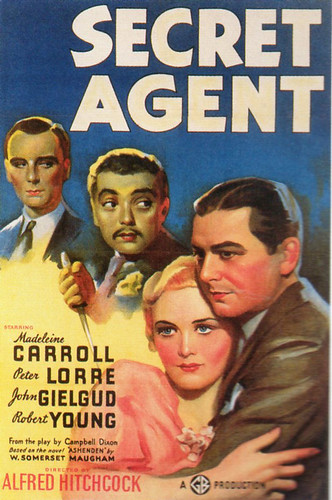 For the last 15 years, I have spent most of my working time with agencies (PR, social media, communications). While in the PR world it was expressly the job, or so I believed, to stay in the background and “make the client famous,” the agency/client relationship has been more than that.
For the last 15 years, I have spent most of my working time with agencies (PR, social media, communications). While in the PR world it was expressly the job, or so I believed, to stay in the background and “make the client famous,” the agency/client relationship has been more than that.
Let me back up a bit: the thing I, and I believe many others in my place, have struggled with over the years is the true definition of “agency.” The most important “feeling out” bit in agency life is figuring out where your authority as an external agent to act on the behalf of the client ends, and where the internal client needs to take over. In my early PR agency days, that tended to take the shape of setting up a relationship with a reporter, then fading back in the role of facilitator. Being an actual spokesperson was not only rare, but being quoted in a publication on behalf of a client was high on the list of work nightmares.
Social media comes along, bringing the role of the agency into question once again – how far to go in being an actual “agent?” The early fights were over “ghost-blogging” which, put simply, was hiring someone to write blog posts for you , in your voice, just as you would hire a speechwriter. Much of the disapproval was misplaced, as the crimes in these instances were not in actually doing it but doing it poorly. No matter who puts finger to keyboard, the voice has to be accurate. This was true back in my journalism career; a bullpen of producers would write copy for anchors to read and the copy had damn well better be in the voice of that day’s anchor (heaven help you if you wrote the word “particularly” for Steve or used too folksy a style for Bob). In other words, yes you can write words on behalf of someone else.
As social media platforms took various forms, managing the content for companies has become an industry. People expect companies to be “human” now and respond, or at least communicate, one-to-one and in real time (that expectation could be its own topic). That raises the stakes of the conundrum; when you speak to a company online, to whom are you really speaking. Of course, that’s where things get complicated – and is the source of the Twitter conversation captured below.
My take; an agency can certainly help perform the voice of the client when it comes to executing a social media program. The idea of agency as counsel is important and vital – helping a client define and express its voice, instructing it how to use it – but many still need help delivering on that promise. And with the strict proviso that it is done within parameters and mistake-free, then the public shouldn’t care where the social media “voice” they are talking to on a particular day is drawing their paycheck from.
One last thing: The Merriam-Webster definition of agent, as applied here, is thus: “One who is authorized to act for or in the place of another.” This is a great reminder of the fact that an agency’s role isn’t merely counsel, as important as that is. The role of an agent is based on trust to act on the client’s behalf. If you have that trust, there are a lot of things you can do.
Here is the conversation referenced above. Chris’ issue is a valid one; if the person representing the company is not doing their job, then it is a bad experience all around, and his impressions are probably common to many average “consumers.” However, the person doing their job poorly could just as easily be an internal person as an agency rep: and the lack of results could be the result of a larger problem: a poor business and communications philosophy.
http://storify.com/dough/role-of-agency-in-online-voice
Doug – Overall I think that the voices should be done by an internal team. While this is an ideal situation, many companies cannot do this due to resource constraints. Agencies can do great jobs, I was on a panel this past week with a group that does Honest Tea and another that does things for P&G.
The important thing is that they get what the brand’s goals are and facilitate the efforts to meet those goals. So where is the fault in that?
I see none, but do know that conventional wisdom notes that with an agency you never really know who is pulling the strings. So there are possibilities of errors (car company comes to mind).
If done in this manner trusting partnership is needed.
I think, everyone else, apart from the founder of the business ( idea), can be considered as an agent. So, in this regard, anyone can go wrong or right depending on how effective has been the communication of the shared vision.
Jeff, believe some of this is driven by need. It is also a measure of the trust between company and agency (hence my turning to the actual definition).
Pramod, you get what I’m going for. Exactly.